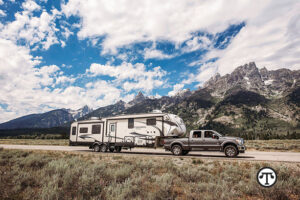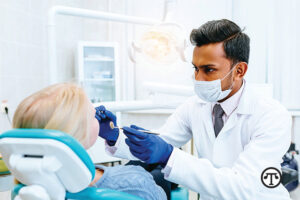Health, Home & Family
(NAPSI)—As scientists are learning more about COVID-19 and how it affects the body, they are also looking for ways to support the innate immune response to infection. While more research is needed, preclinical studies lay a foundation of science to inform future human studies.
A recently published preclinical study focused on levels of a coenzyme called nicotinamide adenine dinucleotide (NAD+) in cells and animal tissue infected with coronavirus, specifically SARS-CoV-2 and lung tissue from a COVID-19 cadaver. The results revealed that NAD+ may play a key role in cellular defense mechanisms.
The researchers observed how SARS-CoV-2 impacted cellular NAD+ levels and how the virus triggered the infected cells to seek out a cellular nutrient called nicotinamide riboside (NR) in an attempt to replenish the NAD+ levels that had dropped due to infection.
In a separate set of experiments, the researchers provided NR to coronavirus infected mouse cells and showed that viral replication was significantly reduced compared to a control. Continue reading
(NAPSI)—If you or someone you know is a soldier, Army veteran, Army family member or other proud military supporter, you can become a permanent part of history at the National Museum of the United States Army.
An historic project led by the Army Historical Foundation and the U.S. Army, the Museum is going up at Fort Belvoir, Va., just south of Washington, D.C.
“We are proud to build a national museum that will tell the history of the Army—and our nation—through the eyes of American soldiers,” said Foundation President U.S. Army Retired Lt. Gen. Roger Schultz. “The timeline for opening the Museum was delayed because of the COVID-19 pandemic, but we promise it will be worth the wait.”
To be included in the Museum’s story, soldiers and Army veterans can submit their stories of service in the Registry of the American Soldier, which will be one of the largest collections of American Soldier profiles ever assembled. Stories can also be submitted on a veteran’s behalf, at no cost. The Foundation currently features the Registry on its website and the collection will be made available on kiosks in the Museum. Stories can be submitted at www.armyhistory.org/the-registries/.
Members of the Army community can also be a permanent part of the Museum by ordering a customized commemorative brick to be laid on the grounds of the Museum. More than 8,000 bricks have already been installed, honoring soldiers from all 50 states. Among the bricks are those for such well-known Army veterans as Senator Bob Dole and General Eric Shinseki. Individuals and organizations can order bricks at www.armyhistory.org/bricks.
To stay up to date on the project, including announcements about opening day, visit www.armyhistory.org.
(NAPSI)—With day-to-day activities affected by the coronavirus, many people greatly reduced their spending. While saving money is great, a solid financial plan is even better. Here are hints on how:
- Make a budget, but focus on the things that you can control. You can’t change your mortgage or rent payment overnight, but you can eat more meals at home.
- Clear the clutter, but keep the cash. You can use sites such as Declutter, Facebook Marketplace and Offer Up to profit from the things you no longer need.
- Simplify your subscriptions. Today there are subscriptions for everything from entertainment to plants. It’s easy to lose track of how much money you’re really spending. Make a list and do away with subscriptions you don’t fully use.
- Plan major purchases. If you’ll need a new dryer, roof or car, figure out how much it will cost so that you can start saving.
- Buy used or refurbished electronics. You can find great smartphones, laptops and other electronics in good condition on such sites as Gazelle, Swappa or eBay. Another tip for saving money is to use Upsie for the most affordable warranties for your electronics, appliances and more. Upsie also offers warranties that include accident protection for used devices.
Learn More
For further facts and tips, visit upsie.com.
OCALA, Fla.—The Florida Department of Health in Marion County wants Micanopy area residents to be aware that a bat in their area has tested positive for rabies. People who live or work in the area should maintain a heightened awareness that rabies is active in the area.
Residents and visitors are advised to take the following precautions:
– Avoid all contact with wildlife, particularly raccoons, bats, foxes, skunks, otters, bobcats and coyotes. Never adopt wild animals or bring them into your home.
Never handle unfamiliar animals (wild or domestic), even if they appear friendly.
– Do not feed or unintentionally attract wild animals with open garbage cans or trash.
– Keep rabies vaccinations up to date for all pets.
– Keep pets under direct supervision so they do not come into contact with wild animals.
– Prevent bats from entering living quarters or occupied spaces in homes, churches, schools, and other similar areas where they might encounter people and pets. Continue reading
(NAPSI)—For many in the American countryside, signals from space have been most welcome for some time. That’s because, in many places, that’s the best way to get Internet service: via satellite.
Then and Now
While early systems may have been only a little better than dial-up, enormous improvements in high-capacity satellites mean they can deliver faster speeds and more data at a more affordable price.
How It Works
Satellite Internet doesn’t rely on terrestrial connections. That’s why it can keep people connected every day and even during disasters when other systems may be down. Instead, the Internet signal is delivered to a connection, which then sends the signal via radio waves up to the satellite over 20,000 miles in the sky. The signal comes back down to your home or office and is captured by a dish-shaped antenna, outside your home, which is connected to the Wi-Fi modem. Continue reading
(NewsUSA) – Sponsored News -Whether you are in a hotel room, at your desk, in an RV, or by a campfire, it can be difficult to get a good cup of coffee away from home. With the holiday travel season in full swing, travelers are wondering how best to enjoy their morning java while on the go.
Most away-from-home coffee options have major drawbacks. Hotel room coffee makers are convenient and cheap, but the coffee they brew means a major compromise on taste. Local cafes often offer good coffee, but the cost of all those to-go cups can really add up.
Existing travel coffee presses offer a way to brew while on the go, but they typically brew slowly and therefore brew a bitter and very acidic cup.
Travelers benefit from being able to brew delicious coffee quickly and easily wherever they are. Luckily there is a perfect way to do just that.
The AeroPress Go travel coffee press brews up to three cups of delicious hot or cold brew coffee that is richer, smoother, and lower in acidity than coffee brewed by other travel presses. Simply add ground coffee and water, stir briskly, press, and enjoy a cup of hot or cold brew coffee in just a minute or two. Continue reading
The Florida Department of Health in Marion County is involved in several key aspects of COVID-19 response. Primarily, the department is focused on:
Testing
Protecting the elderly and vulnerable
Preparing for medical surge
Educating the public on ways to prevent the spread of the virus
DOH-Marion tests for COVID-19 throughout the week, primarily on-site at the department’s Ocala office. DOH-Marion staff also perform case investigations when someone tests positive for the virus. During the investigations, staff identify and speak with contacts of people who tested positive (contact tracing) so that those individuals can watch for symptoms and get tested as needed. This also ensures that both contacts and people who test positive can take extra precautions to prevent the possible spread of the illness further.
For the latest information on COVID-19 in Florida, visit https://floridahealthcovid19.gov/.
You can be tested for COVID-19 at various places within Marion County: Continue reading
 Unprecedented RV rental demand from cautious travelers has made owning an RV the go-to entrepreneurial venture of the year
Unprecedented RV rental demand from cautious travelers has made owning an RV the go-to entrepreneurial venture of the year
(NAPSI)—Millions of Americans who own an RV have it parked in their driveway or a storage facility for the better part of the year. With many families wary of airplanes and hotels these days, it may be time to consider renting your rig to make some serious cash.
According to peer-to-peer RV rental marketplace RVshare, RV bookings have reached unprecedented levels of demand, increasing more than 1,600% since the beginning of April and already tripling 2019 figures. As a result, RV owners are poised to capitalize on the surge of families discovering the unique and adventurous nature of RV travel for the first time.
In fact, the average RV owner who rents on the RVshare platform can earn up to $60,000 a year in rental income. The amount of money you can make from renting your RV can vary based on the type of vehicle you own. Continue reading
 “The Shadow Girl” by Misty Mount
“The Shadow Girl” by Misty Mount
(NAPSI)—“A powerful fantasy that combines a coming of age theme with insights into changing family relationships, the impact of past worlds on present lives, and a shy girl’s unexpected changes.”—Midwest Book Review
Shy, thirteen-year-old Zylia has always known she was different. She’s disappearing from this world and doesn’t know how to stop it. Then she stumbles across a family mystery surrounding the disappearance of her great-aunt Angelica years earlier. During her quest to unravel the mystery, Zylia discovers she’s able to cross the boundary and enter the “in between” world. Now, it’s up to Zylia to save herself before she’s trapped “in between” forever. Purchase at https://amzn.to/2V4riZi.
“Median Gray” by Bill Mesce Jr.
At a time when New York’s mean streets were their meanest, one NYPD detective at the end of his career takes one last chance to correct a 20-year-old injustice, and another cop at the beginning of his career tries to stop him before a police department already scarred by corruption investigations takes another hit.
“Smart, gritty, and authentic, ‘Median Gray’ delivers a crackling tale complete with complex and damaged characters, and a keen eye for what cops know and think.”—SFPD Sgt. Adam Plantinga, author of “400 Things Cops Know” and “Police Craft”. Purchase at https://amzn.to/3epE78e. Continue reading
Gary Severance, DDS, Executive Leader of Professional Relations, Henry Schein Dental
(NAPSI)—As dental offices re-open across the nation, patients may be in for some pleasant surprises. For one thing, you can rest assured that there will be new protocols that help keep your dental visit safe and comfortable.
What Dentists Are Doing
Enhanced patient protection measures include: All dental team members have upgraded their protective gear. This includes appropriate personal protective equipment (PPE) for all appointments. Between patients, dentists and their team will meticulously clean and disinfect surfaces and sterilize instruments.
Many dentists also offer a virtual waiting room. Patients can check in via text message and wait, if necessary, somewhere outside the clinic, such as in a car.
Patients and dental professionals are screened for COVID-19 symptoms and risk factors before each appointment.
To help make the air quality sanitary, many dentists have even invested in high-efficiency air purification systems.
What You Can Do
There are also certain steps you the patient can take to help keep everyone safe as well.
Here, from the experts at the American Dental Association, are some useful facts and tips:
Before your appointment, your dental office may call you to ask about your current health and travel records.
You may also be asked to limit the number of people you bring to the appointment. That could mean leaving your children at home or allowing older children go to the office alone while a parent waits outside.
At your appointment: Be sure to wear a mask, even if it’s not required and especially if your dentist’s office is in an area where one is required. When you get to the dental office, you may be asked to wait outside until they’re ready for you. This will reduce the number of people in the office and reduce the amount of time you’re exposed to other people. When you enter the office, be prepared to have your temperature taken or other health test. Inside the office, things people tend to touch in the waiting room—such as toys or magazines—may no longer be there. Hand sanitizer, masks, and gloves may be made available to you.
Once you’re in the dental chair, you may notice some things look different from the last time you were there. The dentist may have covered the computer’s keyboard with a disposable cover so it can be easily cleaned between patients, for example. Your dentist may also be using different protective equipment than you’ve seen at previous appointments, including different masks, face shields, gowns, gloves, and goggles.
After your appointment, the dental team members will thoroughly clean the area with disinfectant. If you start feeling symptoms of COVID-19 within 14 days of your appointment, contact the dental office. You may have already been carrying the virus at the time of your appointment, so anyone who came into contact with you during that time could be at risk for getting sick, too.
Learn More
For further hints from the dental professionals who get equipment and information from Henry Schein, the world’s largest provider of health care solutions and services to office-based dental and medical professionals, go to www.henryschein.com/customerstories to watch Road to Recovery videos on how dentists are working on ways to reopen safely for everyone.

